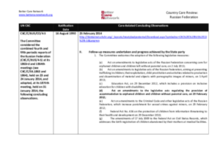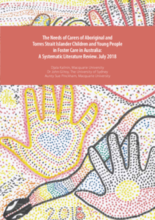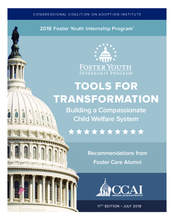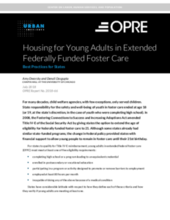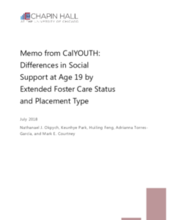Displaying 1181 - 1190 of 2221
This paper presents findings from a longitudinal study with seventy-five carers was conducted over twenty months, comparing placements that broke down to those that did not an identifying personal and family factors that increase the likelihood of foster placement success.
This qualitative interview study with custodians and young people who have experienced custody transfer highlights that who counts as family and as a parent is ambiguous.
This study from the Special Issue on Adoption Breakdown of the journal of Research on Social Work Practice examines foster care reentry after adoption, in Illinois and New Jersey, USA.
In this study, key predictors of trauma were examined using a multi-group analysis of a nationally representative sample of 716 child welfare involved youth ages 11–17.
This country care review includes the care related Concluding Observations adopted by the Committee on the Rights of the Child and the Committee on the Rights of Persons with Disabilities.
This study examined educational attainment and earnings among former foster youth in early adulthood.
The purpose of this study is to support the funding of Aboriginal-controlled research on Aboriginal and Torres Strait Islander children under government-administered foster care arrangements.
CCAI’s Foster Youth Internship Program® is a highly esteemed congressional internship for young adults who spent their formative years in the U.S. foster care system. In this annual policy report, the interns focus on subjects they are personally passionate about due to their experiences and understanding after living in foster care and make personal recommendations for improving the U.S. foster care system.
This brief begins to address knowledge gaps of best practices for housing young adults in extended care, the housing options currently available to those young adults, and how those options vary across and within states in the US.
This memo investigates two questions that pertain to extended foster care and social support. First, are there differences in the types and sources of social support between young people who remain in care past age 18 and young people who exit care? Second, among nonminor dependents, are there differences in the types and sources of social support between youth living in different placement types?

